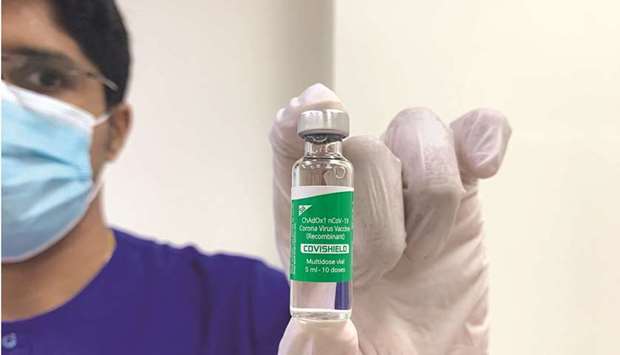As other wealthy nations tightened Covid-19 restrictions over the winter, Dubai decided to take a risk, gradually reopening its economy while embarking on one of the world’s most extensive vaccination drives.
How Dubai fares could become a test case for other global cities as they weigh a return to normality.
Dubai plans to vaccinate all eligible adults by the end of the year, as the emirate uses a variety of shots and movement restrictions to contain the coronavirus.
Economically, Dubai is already reaping some benefits. A gauge tracking business activity showed output rising for the second consecutive month in January. Employment has edged up as non-oil firms see conditions improving. The economy of the UAE, of which Dubai is part, is forecast to grow 1.3% this year, according to the International Monetary Fund, after contracting 6.6% in 2020.
The cost has been a spike in infections that stretched hospitals, attracting criticism at home and abroad, even as the vaccination program gathered pace.
Cases in the UAE quadrupled to almost 4,000 a day by the end of January, though they’ve since fallen to just under 3,000. Notwithstanding that rise, the UAE’s 0.3% fatality rate remains one of the lowest globally, partly due to its youthful population.
That’s given a city known for taking bold risks to get ahead, confidence its health system can cope. Its testing rate is one of the world’s highest, averaging of 1.5% of the population daily.
“It’s striking a balance between the safety and wellbeing of our people and also social well-being and economic sustainability,” Amer Sharif, the head of Dubai’s Covid-19 Command and Control Centre, told Bloomberg TV this week.
It’s a dilemma that’s preoccupied policymakers the world over. While oil exporters around the Gulf have taken a more cautious approach, for Dubai, which relies on international tourism for nearly a third of its gross domestic product, the calculation is different.
The city’s preparing to welcome visitors later this year to Expo Dubai, which was meant to underpin a revival from years of lacklustre growth, but was postponed from 2020. It’s also hoping to catch the spillover from the World Cup in Qatar in 2022.
That’s helped propel a vaccination drive that’s seen residents lining up around the block. The UAE has administered 45 doses per 100 people so far and says it’s on track to vaccinate half the population by the end of March – a rate second only to Israel. It wants all eligible adults inoculated this year.
From vaccine supply glitches to virus variants that could make the shots less effective, however, success depends on developments outside Dubai’s control.
“It might not pressure the healthcare sector much but can continue to disrupt normal life in a way,” said Mohamed Abu Basha, head of macroeconomic research at Cairo-based EFG-Hermes Holding. “The Dubai experience to me simply showed there are no shortcuts in dealing with Covid. The recent measures they’ve taken clearly flag that.”
While it’s remained open to tourism, Dubai’s also had to reintroduce restrictions on travel and the UK banned direct passenger flights to stop the spread of a new strain originating in South Africa. Elective procedures in hospitals have been cancelled for at least a month as wards fill up.
Masks remain mandatory in public places while hotel, mall and restaurant capacity is capped. Its approach stands in contrast to Israel’s, where lockdown measures were reimposed this year and plans to reopen the economy delayed despite progress on vaccinations.
Dubai officials are taking a long-term view.

A health worker shows a Covid-19 vaccine in Dubai on February 8. Dubai plans to vaccinate all eligible adults by the end of the year, as the emirate uses a variety of shots and movement restrictions to contain the coronavirus.
